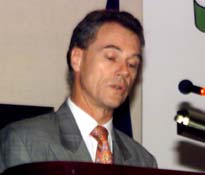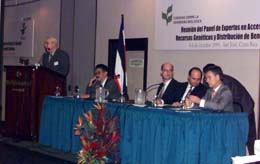|
Experts' Panel
on Access and Benefit-Sharing
|
||||
|
|
|
|
|
|
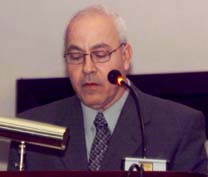 |
|
|
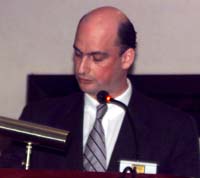 |
|
|
|
|
The Plenary adopted the provisional
agenda (UNEP/CBD/EP-ABS/1/1) as presented by Jo Mulongoy (right),
CBD Secretariat.
|
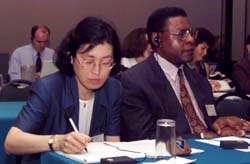 |
| Kerry ten Kate, Kew Royal Botanical Gardens, outlined the review of legislative, administrative and policy measures at national and regional levels. On trends, she also noted the importance of the consolidation of collecting activities, the growing role of intermediaries, recourse to ex situ collections, material transfer agreements and legal acquisitions of samples. On future scenarios, she highlighted the need for simple access laws, distinction between scientific and commercial use, and policies, guidelines and codes of conducts. | |
|
José Carlos Fernández Ugalde, ECOSUR, introduced the review of regulatory
procedures and incentive measures. He stressed that the efficiency
of mechanisms should be the focus of discussions. He highlighted
significant material and social costs for enforcement of access
regulations and said restrictive regulations would lead to high
administrative costs and promote illegal transfers and thus inhibit
implementation of the Convention's objectives.
|
 |
| Estherine Lisinge Fotabong, WWF Cameroon, highlighted capacity building needs and stressed the importance of partnerships between providers and users of genetic resources at all levels. She noted that for benefit-sharing provisions to work effectively, actions must be tailored not only to support the States and their indigenous and local communities supplying genetic resources, but also the users of the resources. | |
|
ETHIOPIA (center) stressed that
the Panel of Experts should provide recommendations to guide national
implementation of the CBD.
|
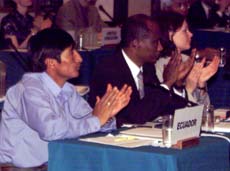 |

